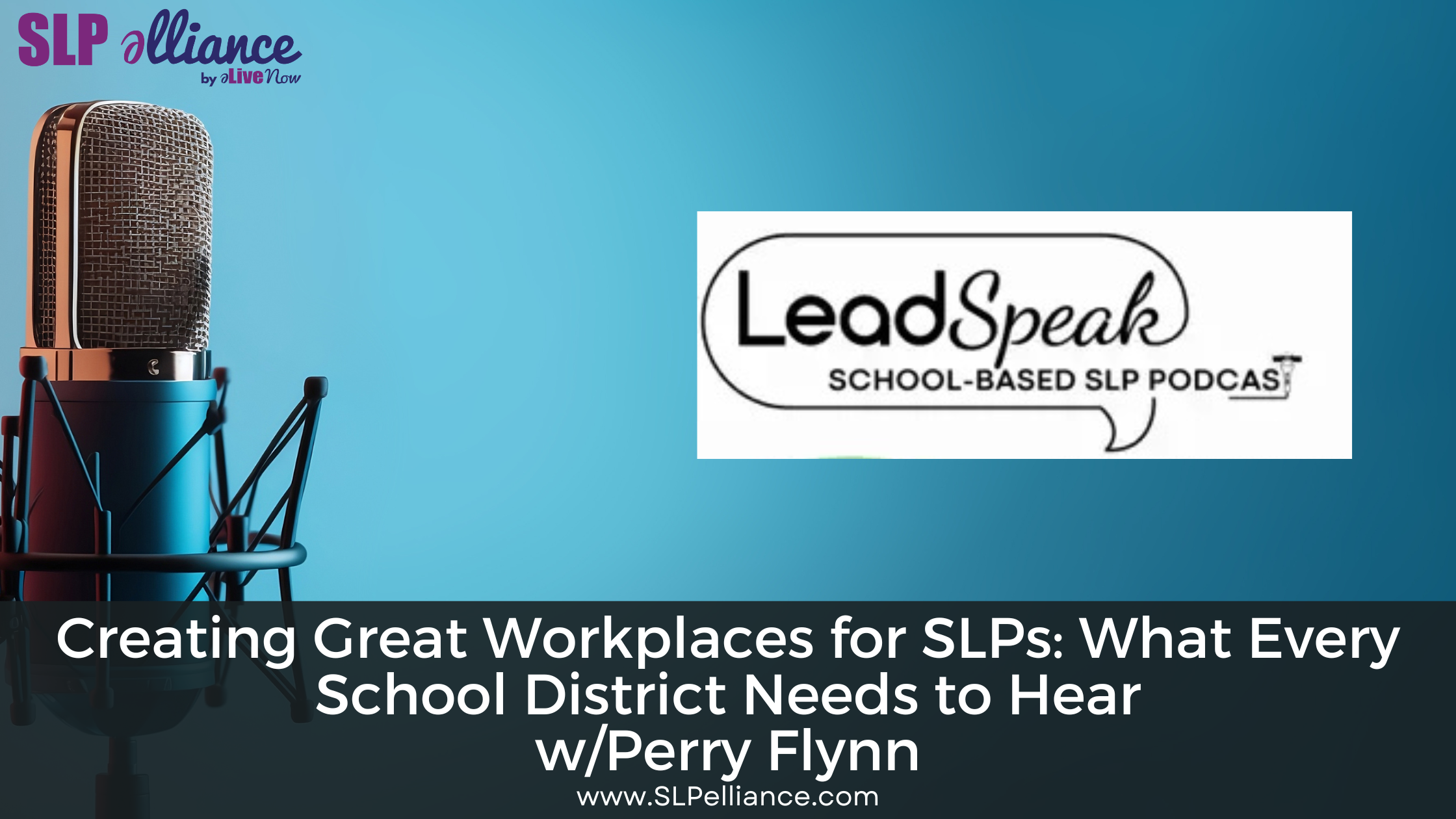With Perry Flynn, Hosted by Judy Rich and Nathalie LeBrun
I recently listened to an episode of the Lead Speak podcast titled “Creating Great Workplaces for SLPs: What Every School District Needs to Hear.” It’s an insightful conversation that I highly recommend. The episode features Perry Flynn, a licensed speech-language pathologist and the speech disorders consultant for the state of North Carolina—a role not all states have, but one that plays a critical part in shaping workplace conditions for SLPs and outcomes for students.
This got me thinking: Does your state have a speech disorders consultant? It’s worth finding out, because their presence can have a significant impact.
Why State-Level Advocacy Matters
In the episode, Flynn speaks to the importance of advocacy at all levels—especially when administrators and observers don’t fully understand the SLP’s role in schools. In many states, there is no dedicated consultant for disciplines like OT, PT, or SLP. Without that representation at the state department level, decisions impacting therapists are often made without deep knowledge of the profession.
A state-level consultant serves a dual purpose:
- Advocating upward to legislative bodies and departments of education
- Supporting downward by empowering SLPs working directly with students
This kind of leadership can result in better caseload management, implementation of caseload caps, and support for recruitment tools like sign-on bonuses. Ultimately, that leads to improved retention and fewer vacancies—something both SLPs and districts benefit from.
The Power of the Lead SLP
Lead SLPs are essential to fostering great work environments. They are in tune with what their teams are doing and can step in when something seems off. For example, if a therapist is spending 50% of their time on documentation, a lead SLP can investigate the root cause and find solutions. This proactive leadership helps build trust and improves day-to-day working conditions.
Beyond internal team support, lead SLPs also serve as a bridge between disciplines. Building relationships with the lead OT or PT in the district fosters collaboration, resource sharing, and coordinated problem-solving. When disciplines communicate and work together, everyone wins—especially students.
The Underrated Impact of Regular Speech Meetings
One of the most powerful (and often overlooked) ways to support SLPs is through monthly speech meetings. These shouldn’t just be check-ins—they should be treated as valuable professional development opportunities. Consider:
- Offering CEUs
- Creating a full-day agenda
- Sharing updated materials and treatment methods
These meetings not only enhance clinical skills, but they also foster a sense of community among therapists. When SLPs are connected across schools, they can advocate more effectively for consistency, best practices, and positive change across an entire district.
What to Look for in a School District
All of this matters not just for administrators—but for SLPs, too, as we choose where to work. Having worked in districts that prioritize speech meetings and collaboration, and others where SLPs are discouraged from even speaking with one another, I can say with confidence: the difference is night and day.
Feeling supported, valued, and connected is what makes us want to stay. It’s what helps us thrive.
So whether you’re leading a department or searching for your next position, these are the things worth advocating for—and worth expecting.
Click here to listen to the full podcast episode:https://podcasts.apple.com/us/podcast/creating-great-workplaces-for-slps-what-every-school/id1735369128?i=1000677465528

